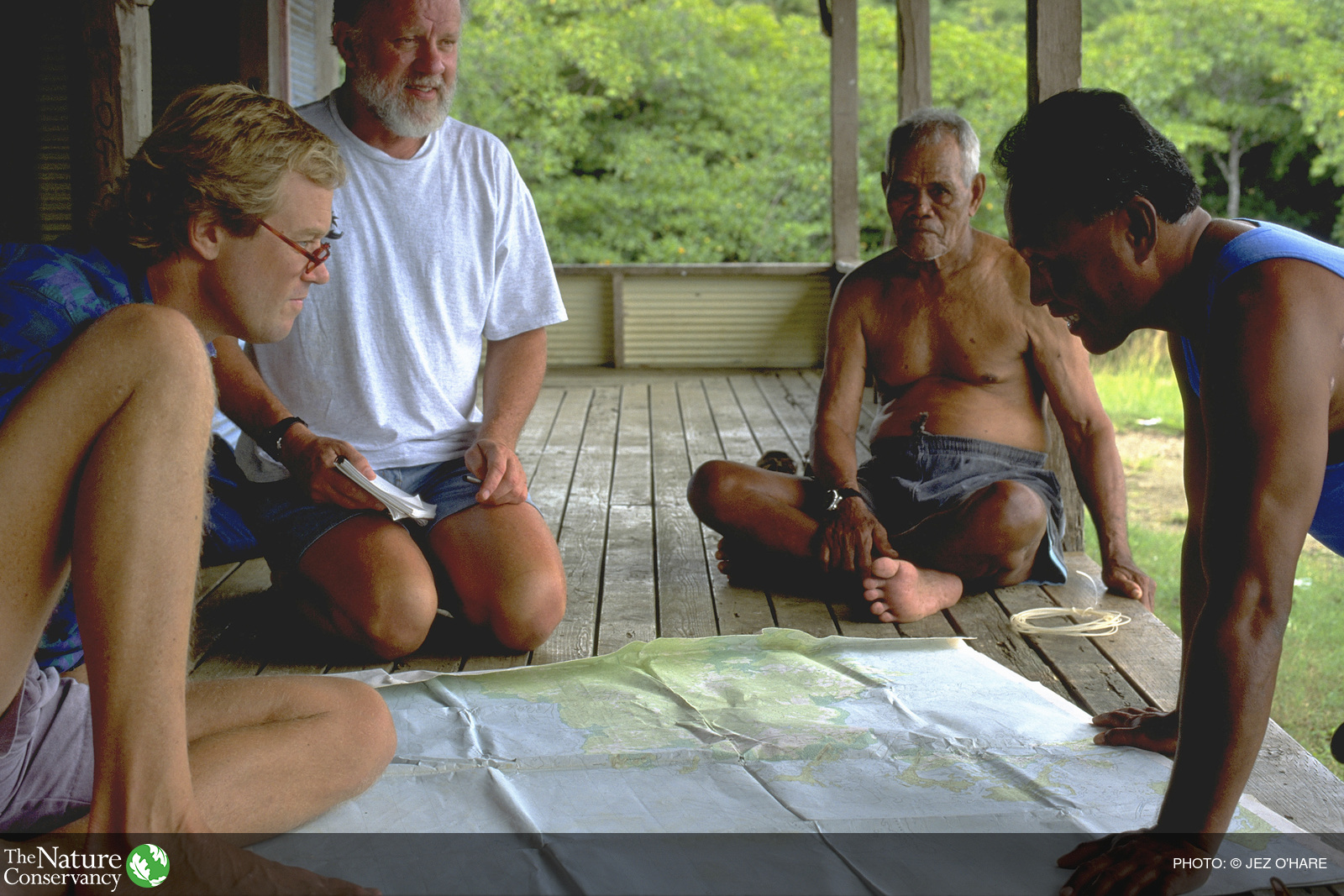Ground Conservation in Culture
Though each is unique, Pacific island cultures all share a deep understanding of and appreciation for the natural world that is grounded in the realization that their survival depends upon the health of their resources. Their intimate knowledge of and reverence for nature enabled Pacific island cultures to thrive for centuries in some of the most remote and isolated places on Earth. Many of their traditional management practices—from ancient fishponds that were early forms of aquaculture to restricted seasons and areas that give fish time to reproduce and grow—continue to inspire conservation today
“Conservation work in the Pacific is not new. Build on the customs and traditions that are already there. Don’t try to replace it with something new. ”
Developing conservation goals, strategies, and plans that honor local conservation ethics, customs, and traditions leads to strong collaboration and the shared commitment required to ensure long-term success. Alternatively, attempting to impose new approaches often alienates potential partners and hinders conservation, as evidenced by the Conservancy’s initial attempts to strengthen conservation in Micronesia (see Scaling Up, Micronesia Challenge). Experiences like these have been all too common, but with increasing respect for diverse peoples, communities, and cultures, they can become a thing of the past.




